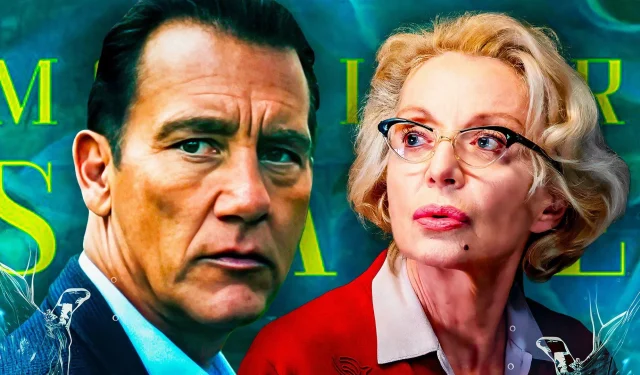
WARNING: Spoilers ahead for Monsieur Spade episode 6.
The Climax of Monsieur Spade: Episode 6 Summary
The sixth and final episode of Monsieur Spade serves more as a resolution to its central themes rather than a conventional murder mystery with shocking twists. This installment follows the aftermath of Jean-Pierre’s tragic shooting at the hands of Philippe Saint-André, played by Jonathan Zaccaï. By the episode’s conclusion, Philippe finds himself arrested, marking a pivotal moment in the series. However, the unresolved fate of Zayd, portrayed by Ismaël Berqouch, leaves a significant gap in the narrative, keeping audiences intrigued until the last moments. Throughout the series, various characters have contended for control over Zayd, a gifted young code-breaker hailing from Algeria.
Philippe’s ambitions regarding Zayd go awry, culminating in the deaths of several secondary characters, including the hostile monk and the private investigator, Mr. Khan. Meanwhile, Cynthia Fitzsimmons (Rebecca Root) also meets her fate after killing George Fitzsimmons. The episode sees Virginia Dell (Alfre Woodard) convening the main characters to sort out their claims to Zayd, ultimately deciding to take him with her. Following a harrowing chase involving secret OAS loyalist Henri (Oscar Lesage), Sam Spade (Clive Owen) and his daughter Teresa (Cara Bossom) foreshadow their complex relationship as the series potentially moves into a second season.
What Becomes of Zayd in Monsieur Spade?
Virginia Dell’s Crucial Decision Regarding Zayd
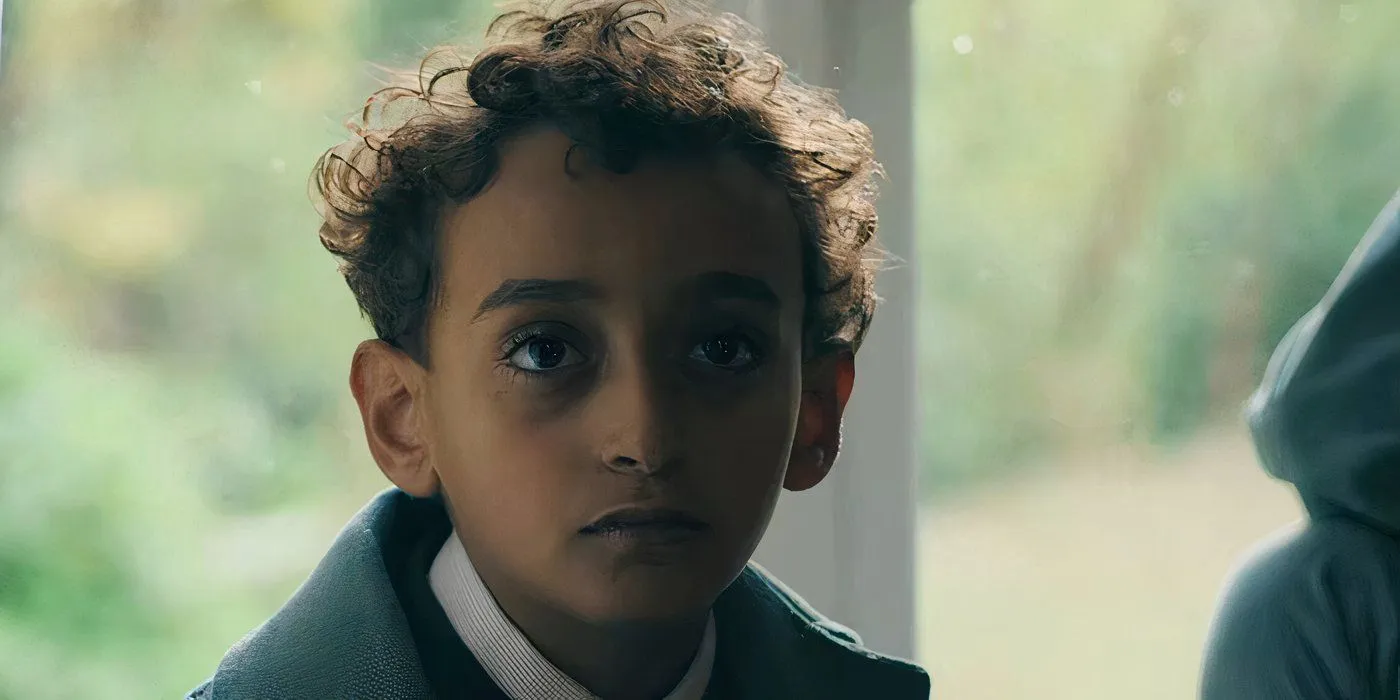
Zayd’s role is central throughout the six episodes of Monsieur Spade. While Spade’s relocation to France appears to be a choice, Zayd’s reality in French-controlled Algeria leaves him devoid of control over his own destiny. Spade suspects a connection between Zayd and the nun murders that take place in the pilot episode. Initially depicted as almost supernatural, Zayd is eventually revealed to be an adept code breaker, leading various characters, including Samir (Hazem Hammad) and the local Imam, to believe he is a prophesied figure.
Yet, despite his significance in advancing the storyline, Zayd suffers from a lack of depth as a character. Unfortunately, the finale reinforces a disheartening notion: Zayd is treated as a MacGuffin, serving essential plot functions without the opportunity to evolve into a fully realized individual. Unlike the titular Maltese Falcon, which embodies the essence of a MacGuffin by being an inanimate object, Zayd’s character falls short of development. Following the disastrous attempt to swap Zayd for a set of assassinations on a bridge, Virginia Dell gathers the critical cast in Philippe’s mother’s living room.
In a classic detective narrative style, it falls to Dell—a supposedly Canadian Special Forces agent—to sift through lies and truths. Throughout her deliberations involving Philippe, Henri, Marguerite, Cynthia, and Spade, it becomes clear that no one holds inherent rights to Zayd’s life. Ultimately, it’s only Philippe who remains in consideration, and Dell opts to take Zayd home.
Is Philippe Saint-André Held Accountable for His Crimes?
Philippe’s Downfall: The Murder of Jean-Pierre
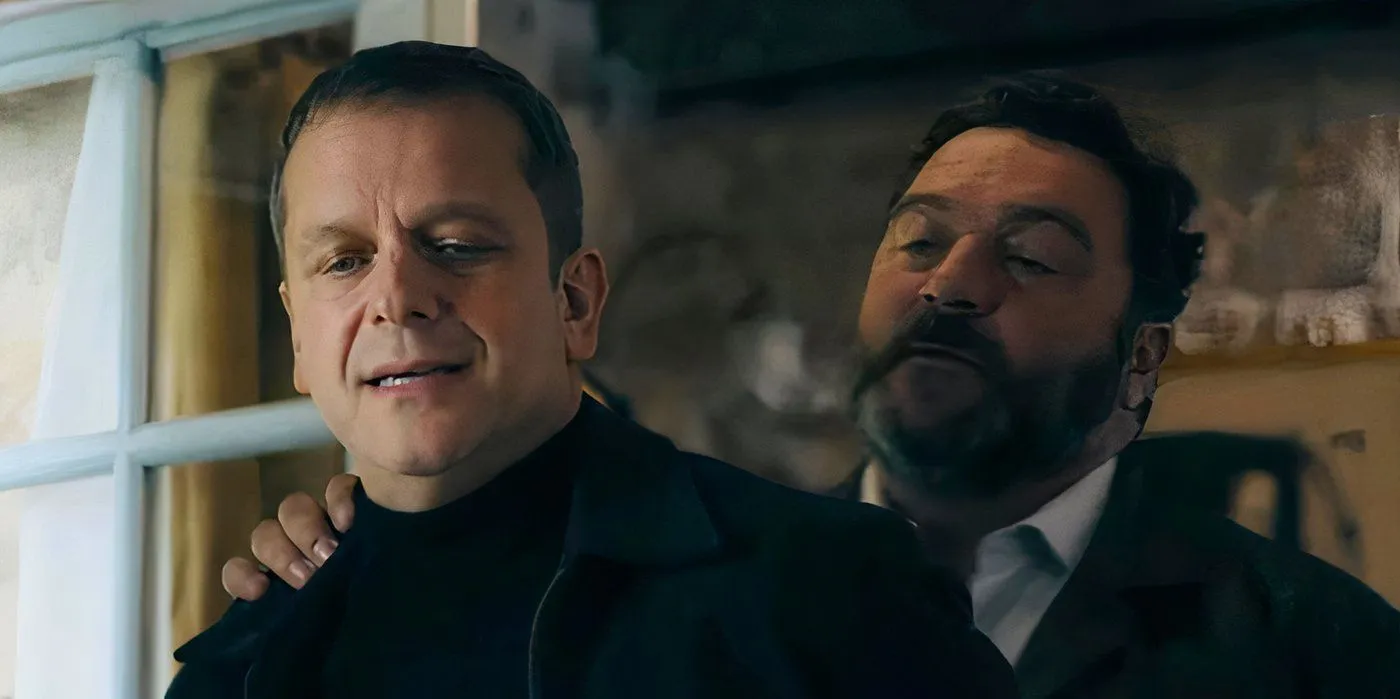
The series finale sees Philippe Saint-André apprehended by law enforcement, a welcome resolution amidst the chaotic narrative that unfolded throughout the season. Philippe’s criminal exploits culminate in the shocking cold-blooded murder of Jean-Pierre. In a desperate attempt to broker a deal for Zayd’s life, Philippe orchestrates a deadly exchange at a bridge, employing a sniper hidden in his mother’s house. This strategy inadvertently claims the life of Mr. Khan, who was meant to facilitate the transaction.
As Marguerite emerges just before the exchange, she inadvertently reveals the dynamics of Philippe’s treachery when she drops a gun on the table—a gift from Philippe to Jean-Pierre. This devastating information marks the unraveling of Philippe’s tightly woven facade. Emotionally charged, Marguerite confesses that she and Jean-Pierre shared an unspoken understanding, but as events unfold, Philippe’s betrayal tears their bond apart. After a failed exchange for Zayd, Philippe attempts to escape, but is thwarted by MI6 agent Cynthia Fitzsimmons.
Understanding Henri’s Real Allegiances: His Conflict with Sam Spade
Henri Follows Spade and Targets Teresa
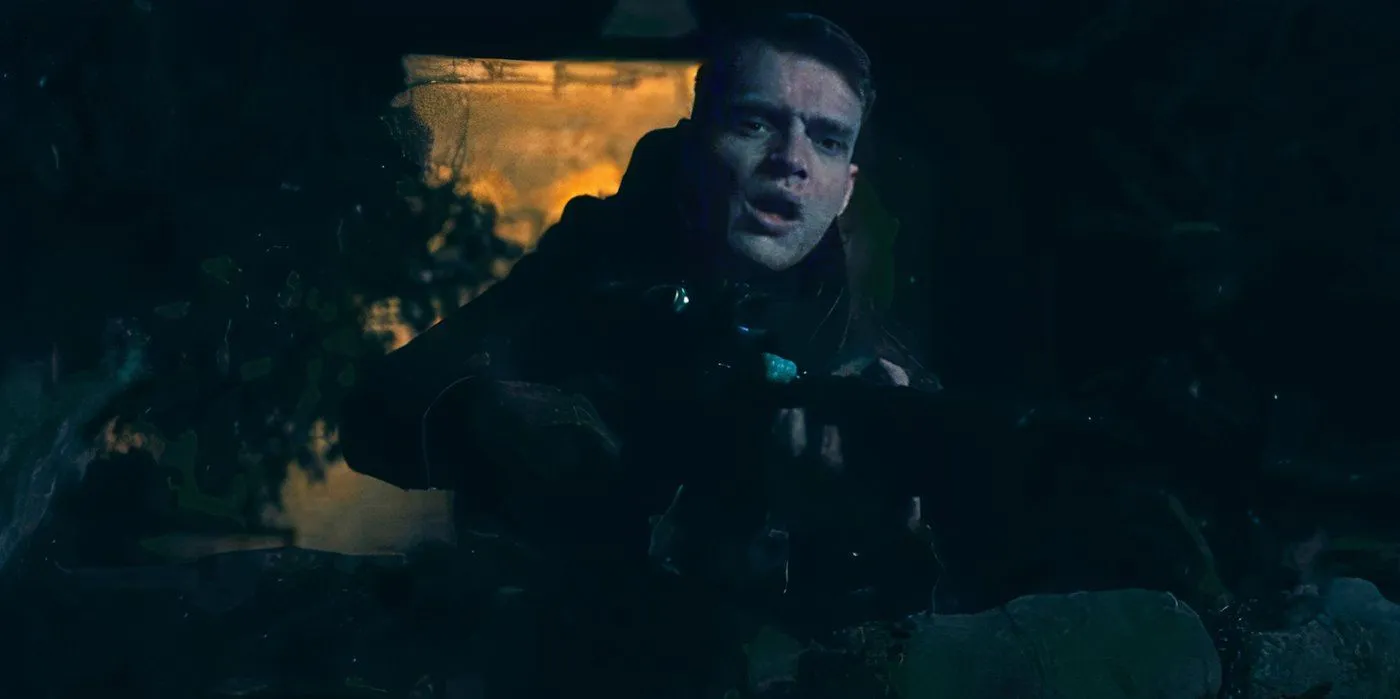
In the early scenes of the episode, Sam Spade finally identifies his covert follower: Henri, an OAS loyalist. Henri was responsible for an attempted assassination of Teresa, firing through a window in a misguided approach to protect her. While he professes to care for her, Sam challenges Henri’s loyalty, warning that any harm to Teresa would lead Spade to take drastic measures against him. Though Henri seems to have an interest in securing Zayd, he ends up providing cover for Mr. Khan during the bridge confrontation.
In contrast to Philippe, Henri refrains from directly killing anyone. However, when the hostile monk takes Teresa hostage, Henri struggles to secure a clean shot. Ultimately, it is left to Chief of Police Patrice Michaud to eliminate the threat. Earlier, Mr. Khan visited Spade to explain the origin of “sabotage,”relating it to the wooden shoes used by French workers. In the context of the plot, Khan suggests Spade himself is a “sabot,”while Henri emerges as a deceptive red herring.
Spade and Teresa’s Relationship: Implications for Sam’s Future in France
Father-Daughter Relationship Hints at Season 2
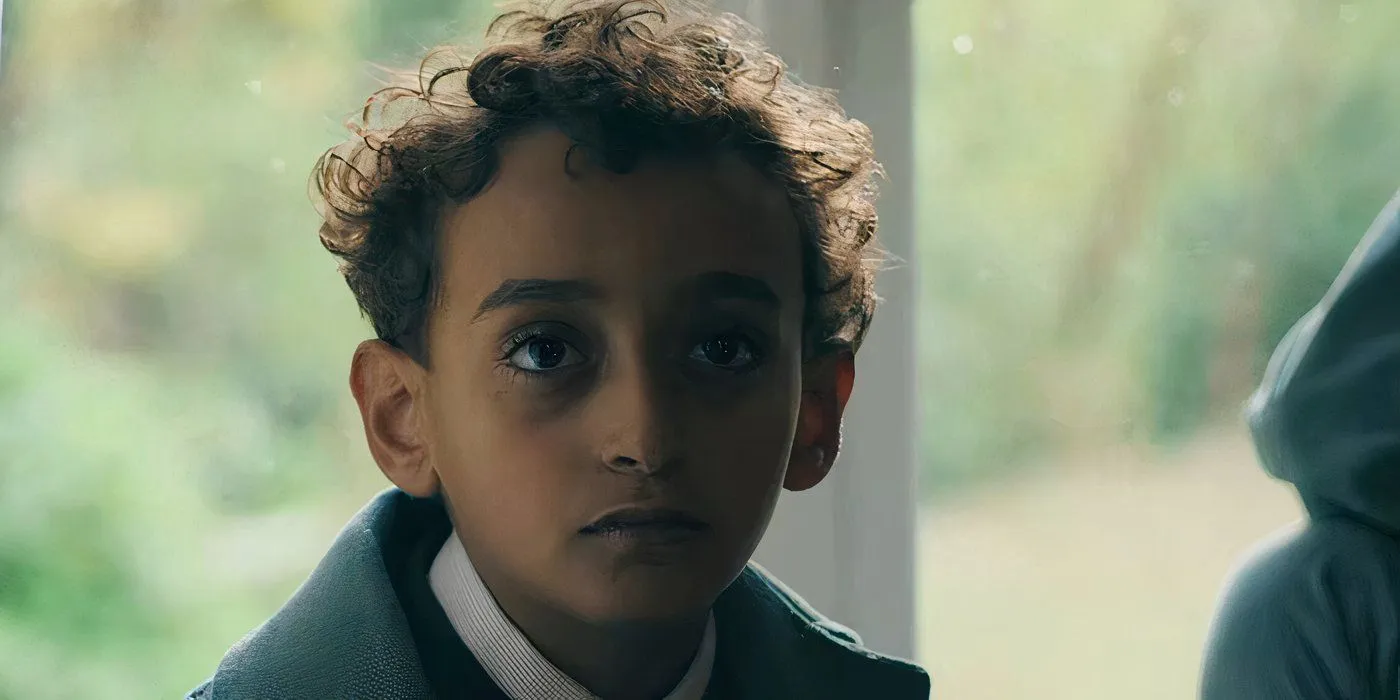
The dynamic between Sam and Teresa has been a highlight of the series since the premiere. In episode 5, Spade discovers that Teresa’s mother had falsified her birth certificate, making her older than originally thought. The implications of this revelation ripple into episode 6, where Teresa confronts Henri and suggests that Philippe is not her real father.
While AMC has yet to confirm a second season of Monsieur Spade, the finale leaves room for further exploration of Sam and Teresa’s relationship. Star Clive Owen previously hinted at shifting the narrative from France back to San Francisco—the iconic setting of The Maltese Falcon. The shared emotional journey of Sam and Teresa, initiated at the series’ start, remains compelling as their bond deepens. In the closing moments, Teresa’s excitement when Sam asks her to call him “Sam”underscores the evolving father-daughter relationship.
Interpreting the Conclusion of Monsieur Spade in Relation to The Maltese Falcon
Uncertainty Surrounds Sam Spade’s Future as a Private Investigator
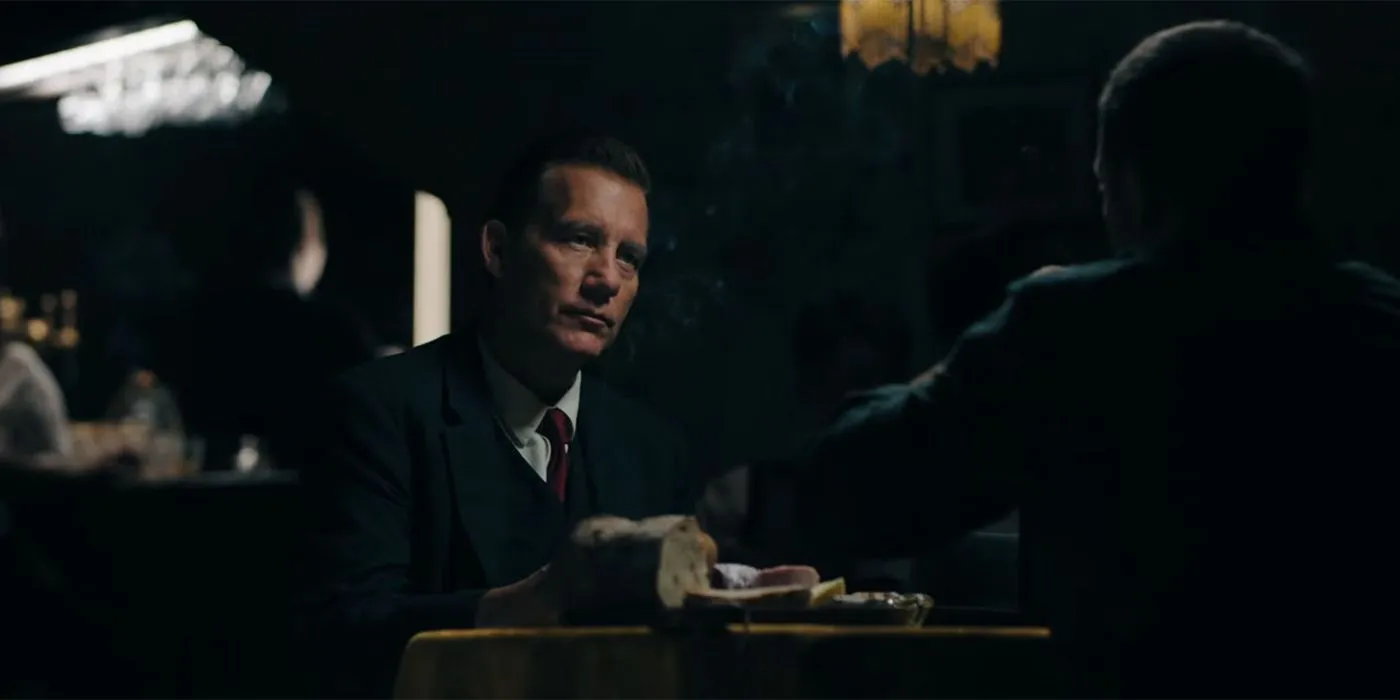
The series delves deeper into Sam’s backstory, particularly his relationship with Gabrielle (Chiara Mastroianni). Throughout Monsieur Spade, Spade has harbored a penchant for swimming nude—a quirk that gains significance in the finale. In a profound moment, Gabrielle invites Spade to her pool, revealing her desire to share her life with him, but simultaneously alluding to her terminal illness.
This conversation carries emotional weight as Gabrielle expresses a wish to spare Sam the pain of witnessing her decline. The poignant exchange—marked by Gabrielle’s defiant entry into the pool—highlights the complexity of their relationship. In the series’ conclusion, Sam remains at the pool, uncertain of what lies ahead, portraying a future fraught with ambiguity.
Reactions to the Ending of Monsieur Spade Season 1
Mixed Reactions to the Series Conclusion
The ending of Monsieur Spade has drawn a range of responses, with some viewers expressing disappointment regarding the finale. Several fans felt that the hasty conclusion and the unexpected appearance of Virginia Dell hindered the series’ coherence. A user on Reddit noted concerns over the Zayd storyline feeling out of sync with the established narrative:
I liked the series up to the finale. It seems the writers went down a path and couldn’t find a way out… I think the series took a wrong turn with the Zayd plotline. A young child who could prove the existence of God and crack every code was a touch of magical realism that doesn’t mesh with the Sam Spade back story.
Contrarily, some critics offered a more lenient assessment, suggesting that the ambiguous ending aligns well with the noir genre’s tradition. One reviewer maintained that the finale’s poetic closure did justice to the noir aesthetic exhibited throughout the season, despite a few narrative flaws:
[T]he ending of Monsieur Spade is poetic and fitting of the noir magic we have seen unfold over the past few weeks. I still think a lot of work could have been done to shore up the storytelling, which I found to be very distracted and fractured. The final scene felt anticlimactic and unintentionally chaotic. However, the bookended conclusion must not overshadow the rest of the finale, which is riveting.
John DeVore from The AV Club highlighted Clive Owen’s performance as a significant asset in the finale, remarking on how effectively Owen embodies both the traditional and vulnerable aspects of the noir protagonist:
The final moment of Monsieur Spade’s finale is both mournful and romantic, as our hero wears his trademark fedora for the first time and remembers the woman he still loves. That’s not an easy emotional note to hit, but Owen does it without saying a word, just a hopeful, mildly defiant look. The installment that precedes this moment of grace answers questions and solves mysteries in predictable and unpredictable ways.
For more insights, check the Source & Images.
Leave a Reply ▼